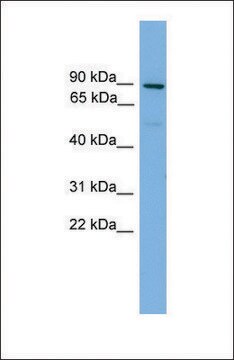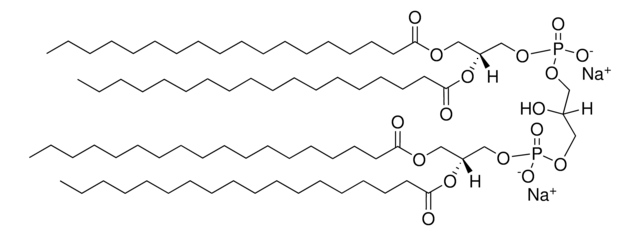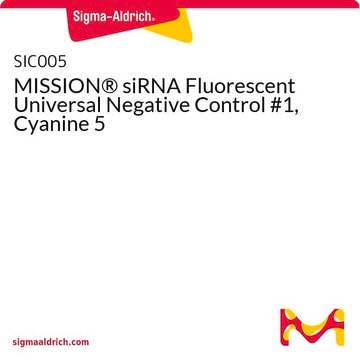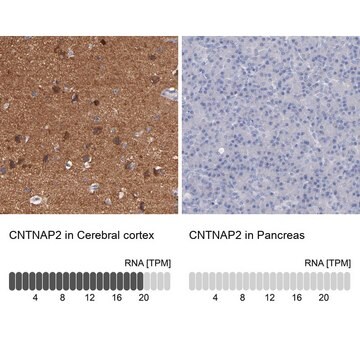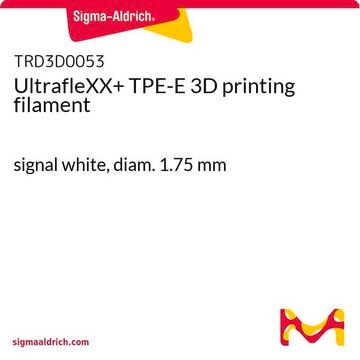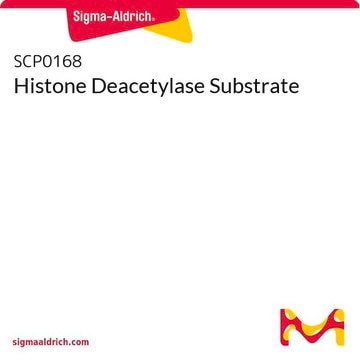SRP0245
DYRK2 Active human
recombinant, expressed in baculovirus infected insect cells, ≥50% (SDS-PAGE)
Synonym(s):
dual specificity tyrosine-phosphorylation-regulated kinase 2
Sign Into View Organizational & Contract Pricing
All Photos(2)
About This Item
UNSPSC Code:
12352200
NACRES:
NA.32
Recommended Products
biological source
human
recombinant
expressed in baculovirus infected insect cells
Assay
≥50% (SDS-PAGE)
form
aqueous solution
mol wt
63.5 kDa
packaging
pkg of 10 μg
concentration
>0.02 mg/mL
NCBI accession no.
UniProt accession no.
shipped in
dry ice
storage temp.
−70°C
Gene Information
human ... DYRK2(8445)
General description
Human DYRK2 (GenBank Accession No. NM_003583), full length with N-terminal His tag, MW = 63.5 kDa, expressed in Baculovirus infected Sf9 cell expression system.
Application
Useful for the study of enzyme kinetics, screening inhibitors, and selectivity profiling.
Physical form
TBST+20% glycerol+3mM DTT
Preparation Note
Thaw on ice. Upon first thaw, briefly spin tube containing enzyme to recover full content of the tube. Aliquot enzyme into single use aliquots. Store remaining undiluted enzyme in aliquots at -70°C. Note: Enzyme is very sensitive to freeze/thaw cycles.
Certificates of Analysis (COA)
Search for Certificates of Analysis (COA) by entering the products Lot/Batch Number. Lot and Batch Numbers can be found on a product’s label following the words ‘Lot’ or ‘Batch’.
Already Own This Product?
Find documentation for the products that you have recently purchased in the Document Library.
Isao Kii et al.
Nature communications, 7, 11391-11391 (2016-04-23)
Autophosphorylation of amino-acid residues is part of the folding process of various protein kinases. Conventional chemical screening of mature kinases has missed inhibitors that selectively interfere with the folding process. Here we report a cell-based assay that evaluates inhibition of
Rosario Morrugares et al.
Cellular and molecular life sciences : CMLS, 77(13), 2621-2639 (2019-10-13)
NOTCH proteins constitute a receptor family with a widely conserved role in cell cycle, growing and development regulation. NOTCH1, the best characterised member of this family, regulates the expression of key genes in cell growth and angiogenesis, playing an essential
Martin Mehnert et al.
Nature communications, 11(1), 3563-3563 (2020-07-18)
Rapidly increasing availability of genomic data and ensuing identification of disease associated mutations allows for an unbiased insight into genetic drivers of disease development. However, determination of molecular mechanisms by which individual genomic changes affect biochemical processes remains a major
Our team of scientists has experience in all areas of research including Life Science, Material Science, Chemical Synthesis, Chromatography, Analytical and many others.
Contact Technical Service